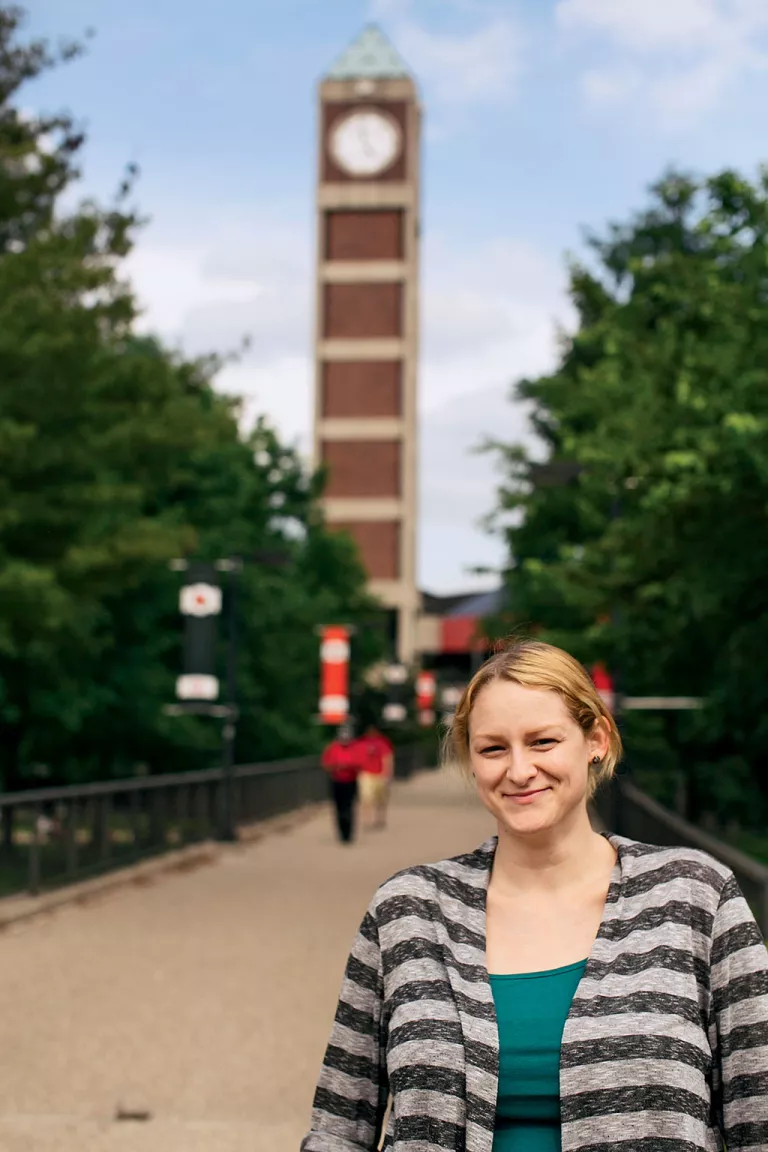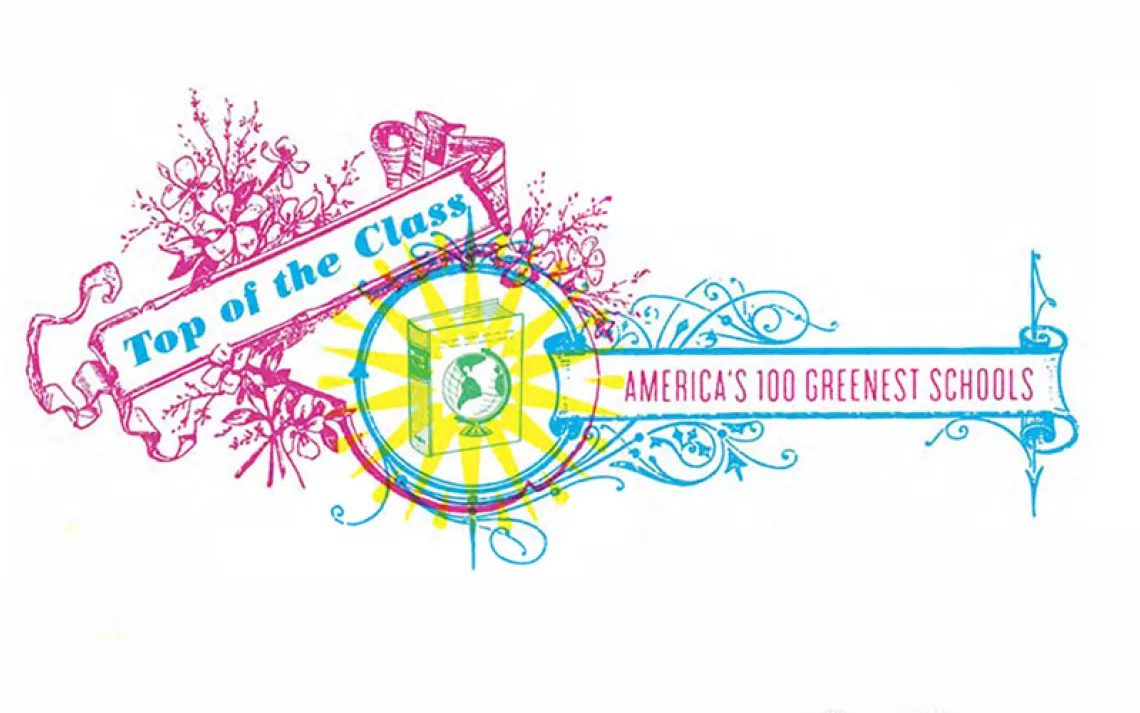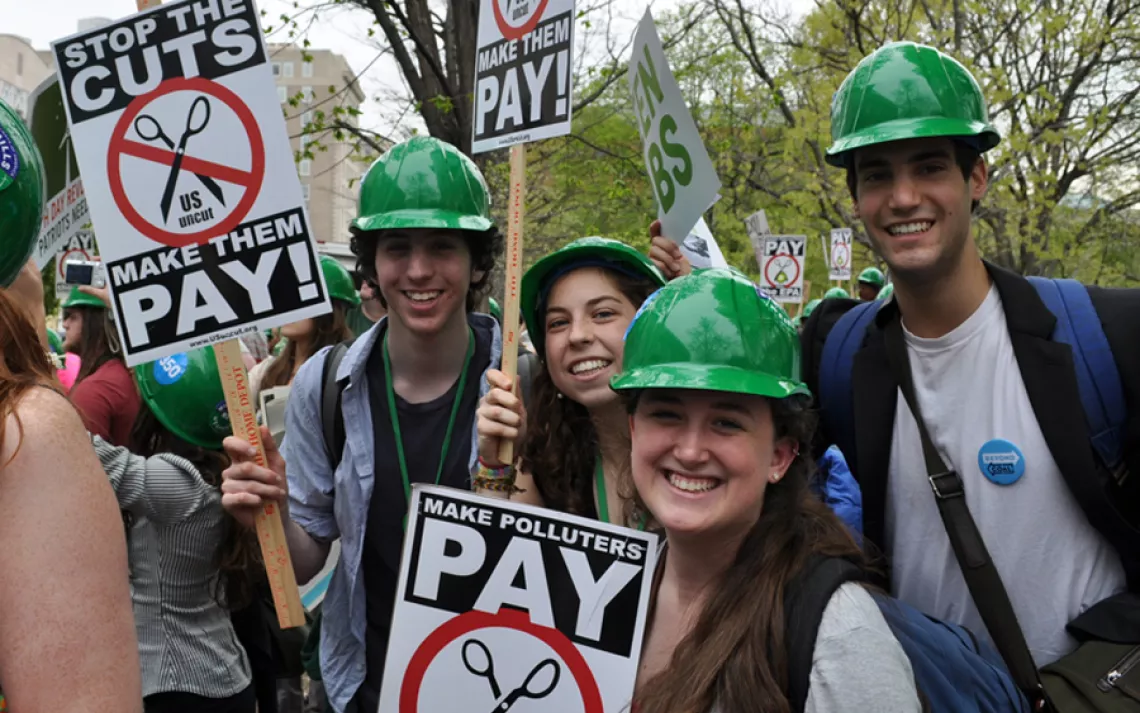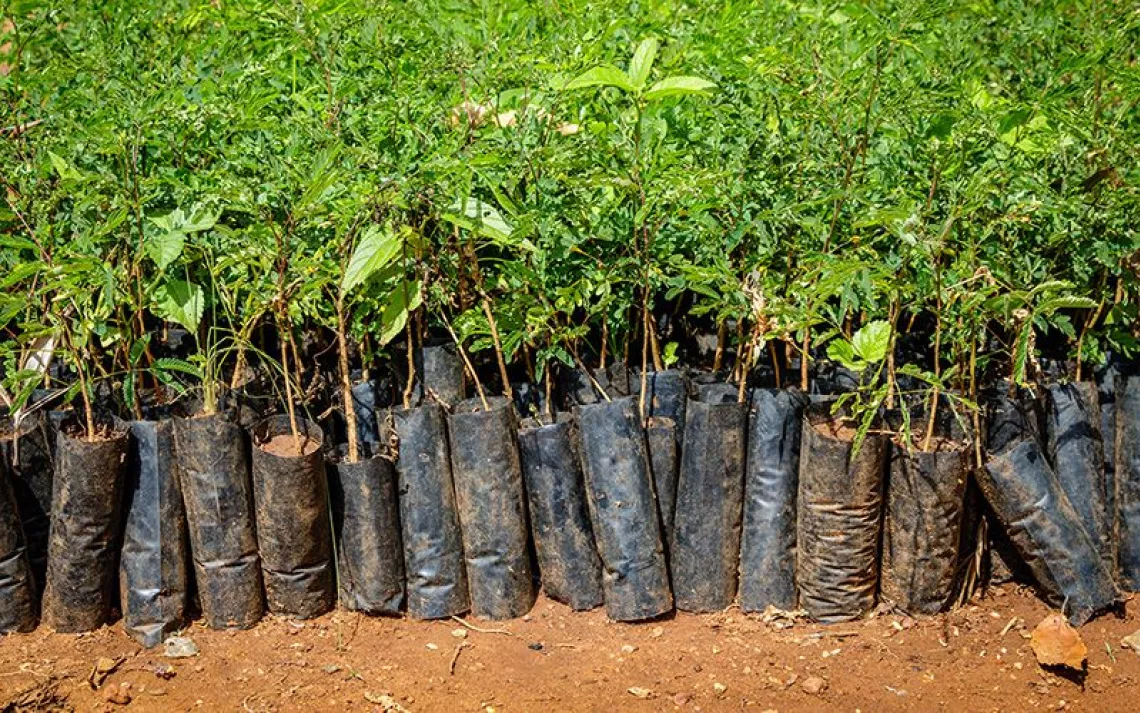The Liberal Arts Get Schooled
Don't know much biology? You will. Even social sciences are getting injected with environmentalism's hard facts.

Angie Carlson at the University of Louisville. | Photo by Lang Thomas Photography
Composting wasn't on Angie Carlson's agenda four years ago when she headed to Kentucky's University of Louisville to study philosophy. But by graduation, it had become as much a part of her academic experience as Kant and Nietzsche.
One of her ethics professors assigned some unusual homework: As an exercise in critical thinking, students were to document their waste. All of it. "There's no such thing as 'away,'" she remembers him saying. "When you follow your trash, you ask, 'What else could be done with this?'"
Carlson isn't the only liberal arts student who learned to consider the planet. Higher educators nationwide describe an exploding interest in environmental issues from students of all majors--including those who aren't gearing up for careers as scientists, engineers, or resource managers.
Curricula are changing in response, with more entry-level environmental courses designed for nonmajors, and formalized sustainability departments tying together everything from economics to fine art.
Carlson went on to help her professor grow a small composting project of his into a campus-wide effort. She was driven by her passion for philosophy: "What I'm particularly interested in," she says, "is the ethical angle of sustainability, getting people to make the right choices."
Carlson's experience is typical of what's happening all over the country: In the age of climate change, students and faculty are demanding an interdisciplinary approach that recasts old definitions of the environmental sciences, says Cully Nordby, who directs UCLA's sustainability institute.
Nordby is leading a campaign to create a School of Sustainability at UCLA, which would offer degrees to students tackling environmental challenges from almost infinite angles. Her challenge has been to convince administration brass to punch holes in the walls between departments. And she's seeing barriers start to crumble. The number of sustainability degree programs offered nationwide jumped by an astounding 984 percent between 2008 and 2012, from 13 to 141. And though the U.S. Department of Education recognized "sustainability studies" as a field only in 2010, degrees related to the environment accounted for more than 9 percent of college diplomas in 2011, marking a 10-year high for a trend that's grown annually since 2004.
Joel Meyer teaches a freshman-level environmental studies course at Duke University. Recently, he shifted its curriculum away from hard-core science and toward the wider basics of environmental ethics. "I help people realize that environmental science and policy touch on practically every career," he says, "as well as being a citizen in a democracy."
Last year, Debra Levine, a psychology grad student at the University of Michigan, published a study that found that students who learned about the environment were much likelier to act in green ways.
As for Carlson, she graduated in May but hopes to stay on at Louisville --which is developing a sustainability master's program--for grad school in bioethics, and to groom other students to helm the composting program. Many of her coal-country peers, who come from a culture in which the word "environmentalist" can still be a slur, are starting to open their minds as lesson plans go green.
"Climate change," she says, "is no longer an abstract philosophical argument. And maybe we wouldn't be in this situation if environmental education had more prominence earlier. But it's never too late."
 The Magazine of The Sierra Club
The Magazine of The Sierra Club



